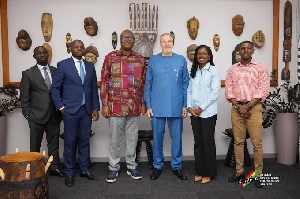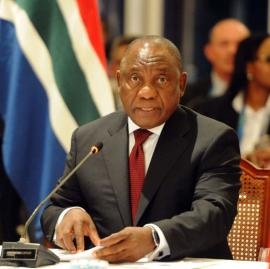- Home - News
- Elections 2024
- News Archive
- Crime & Punishment
- Politics
- Regional
- Editorial
- Health
- Ghanaians Abroad
- Tabloid
- Africa
- Religion
- Photo Archives
- Press Release
General News of Monday, 14 April 2025
Source: www.ghanawebbers.com
Apple was on brink of crisis before Trump tariff concession
Apple Inc. has avoided a major crisis for now. Donald Trump’s 125% tariffs on Chinese goods threatened its supply chain. This situation was similar to the disruptions caused by Covid-19 five years ago.
On Friday night, Trump exempted many popular Apple products from these tariffs. This includes iPhones, iPads, Macs, Apple Watches, and AirTags. Additionally, the 10% tariff on imported goods from other countries has been dropped for these items.
However, a new sectoral tariff may still apply to goods with semiconductors. A 20% tariff remains on electronics shipped from China. Over the weekend, Trump stated he would continue applying tariffs to phones and computers.
The timing of future tariff changes is uncertain. For now, this exemption is a win for Apple and the consumer electronics industry. They rely heavily on manufacturing in China.
Evercore ISI analyst Amit Daryanani called it a major relief for Apple. He noted that tariffs would have increased costs significantly. He expects Apple's shares to rise after an 11% drop this month.
Before this exemption, Apple planned to shift more production to India. This move aimed to avoid high tariffs and prevent price hikes. The company believed Indian facilities could produce over 30 million iPhones annually.
Apple sells about 220 million to 230 million iPhones each year. About one-third of those are sold in the US. Shifting production would be challenging as they near production of the iPhone 17 in China.
Concerns grew within Apple's finance and marketing teams about new phone launches. They faced pressure to quickly move production or raise prices while maintaining margins.
Uncertainty remains regarding White House policies and potential changes ahead. For now, management can breathe easier with this temporary reprieve.
The iPhone accounts for over half of Apple's revenue. The Chinese Ministry of Commerce called the exemption a small step toward correcting US trade actions.
US Commerce Secretary Howard Lutnick indicated that exemptions might be temporary. He reiterated Trump's plan for specific levies on electronics in the future.
If Apple rapidly shifts more production from China, retaliation is possible. About 17% of Apple's revenue comes from China, where it operates many stores.
China has launched inquiries into US companies and could complicate matters for Apple. In recent years, it banned certain US-designed devices among government workers due to tensions with Washington.
About 87% of iPhones are produced in China according to Morgan Stanley estimates. Approximately four out of five iPads are also made there along with 60% of Macs.
These products contribute around 75% of Apple's annual revenue. However, nearly all Apple Watches and AirPods are built in Vietnam now.
Some iPads and Macs are also manufactured there while Mac production expands in Malaysia and Thailand. The company generates significant sales from its products in the US market as well.
A complete separation from China seems unlikely despite Trump's push for domestic manufacturing efforts due to talent shortages here.
China's facilities offer unmatched speed and efficiency crucial for global sales beyond America.
Since April's tariff announcements, lobbyists have urged exemptions from the White House amid escalating trade tensions between Washington and Beijing.
This urgency increased after Trump paused higher tariffs on other countries which could benefit rivals like Samsung Electronics Co., who manufacture outside China.
Apple argues that while they want to invest more in the US, moving final assembly offers little advantage compared to focusing on high-value jobs like semiconductor production.
Entertainment









